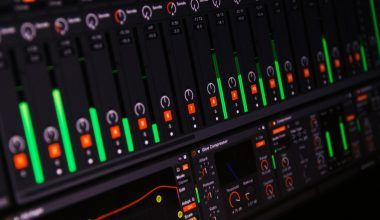Music has always been a powerful way for people to express themselves. It’s a universal language that connects us to emotions, stories, and experiences. But sometimes, music can also be bold, raw, and straightforward. This is where explicit meaning in music comes into play. Whether you’re listening to rap, pop, rock, or any other genre, explicit lyrics are a way for artists to share their unfiltered thoughts and feelings. But what does “explicit” really mean in music? Let’s break it down together.
Explicit meaning in music refers to lyrics or themes that include strong language, adult content, or topics that might not be suitable for all audiences. These songs often come with a parental advisory label to let listeners know what to expect. But explicit doesn’t just mean bad words. It’s about delivering messages that are real, raw, and sometimes controversial. These messages can spark conversations, challenge norms, or simply give a voice to emotions that can’t be sugarcoated.
Why Do Artists Use Explicit Content?
Artists choose to include explicit content in their music for various reasons. For one, it’s a way to keep their music authentic. When an artist feels strongly about a topic, they often use raw and unfiltered language to communicate their emotions. Imagine trying to describe frustration, anger, or deep passion without being honest. It wouldn’t have the same impact, would it?
Explicit lyrics also give artists creative freedom. Music is an art form, and just like painters use bold colors to make a statement, musicians use explicit words and themes to make their art stand out. Think about some of the most memorable songs in history. Many of them became iconic because they dared to say what others wouldn’t.
Additionally, explicit content reflects real-life experiences. People’s lives are not always neat and tidy. By including explicit themes, artists can tell stories that feel relatable and real. For example, a song about overcoming struggles might include explicit language to capture the intensity of the journey.
The History of Explicit Lyrics in Music
Explicit lyrics aren’t a new phenomenon. In fact, they’ve been around for decades. Back in the 1970s and 1980s, artists like George Carlin and 2 Live Crew pushed boundaries with their bold and unapologetic content. Their music sparked debates about censorship, free speech, and artistic freedom.
Fast forward to today, and explicit lyrics are more common than ever. From hip-hop and R&B to punk rock and pop, many genres embrace explicit themes. However, the way these lyrics are received has evolved. Thanks to streaming platforms and digital music stores, listeners can easily access songs with explicit labels. This transparency helps people make informed choices about what they want to hear.
How Explicit Lyrics Impact Listeners
You might wonder, how do explicit lyrics affect people? For some listeners, these songs can be empowering. They might find comfort in hearing someone else put their feelings into words. Others might feel inspired by the honesty and boldness of the artist. For example, many rap songs tackle issues like social injustice and personal struggles, giving listeners a sense of connection and understanding.
On the other hand, explicit lyrics can also be controversial. Some people argue that they promote negative behavior or desensitize audiences to harsh language. Parents, in particular, might worry about their kids being exposed to explicit content. That’s why tools like parental advisory labels and clean versions of songs exist. They help create a balance between artistic freedom and responsible listening.
The Role of Parental Advisory Labels
You’ve probably seen the black-and-white “Parental Advisory” sticker on album covers or next to songs on streaming platforms. This label was introduced in the 1980s as a way to warn listeners about explicit content. It doesn’t censor music but provides a heads-up for anyone who might prefer to avoid strong language or adult themes.
These labels have become a standard in the music industry. They empower listeners to make choices about what they consume. Parents can use them to guide their children’s listening habits, while fans can decide if they’re comfortable with the content. It’s all about giving people the information they need to enjoy music in their own way.
Explicit Music in Different Genres
Explicit content isn’t limited to one type of music. It can be found across genres, each using it in unique ways. Let’s take a closer look:
- Rap and Hip-Hop: Known for its raw storytelling, this genre often uses explicit lyrics to address topics like inequality, resilience, and personal struggles. Artists like Tupac, Kendrick Lamar, and Cardi B have made waves with their bold messages.
- Rock and Punk: These genres are known for their rebellious spirit. Bands like Green Day and Nirvana use explicit content to challenge societal norms and express individuality.
- Pop Music: Even pop, which is often considered light and fun, includes explicit content. Artists like Billie Eilish and Ariana Grande have incorporated bold lyrics to explore themes of love, heartbreak, and self-discovery.
- R&B and Soul: These genres use explicit lyrics to dive deep into emotions and relationships. From heartbreak to passion, artists like The Weeknd and SZA use raw language to paint vivid pictures.
Clean Versions and Censorship
To cater to a broader audience, many artists release clean versions of their songs. These versions remove or replace explicit words, making the music more accessible to younger listeners or those who prefer milder content. For example, instead of bleeping out words, some artists use creative alternatives that still convey the message without crossing boundaries.
Censorship, on the other hand, is a more complex topic. While some argue that explicit content should be restricted, others believe it’s a violation of free speech. The debate continues, with both sides presenting valid points. What’s clear, though, is that listeners appreciate having options. Clean versions and explicit versions allow everyone to enjoy music in a way that suits their preferences.
The Power of Words in Music
Music has the unique ability to move us, and words play a big role in that. Explicit lyrics might seem shocking at first, but they often carry deeper meanings. They can inspire change, spark conversations, or simply resonate with people on a personal level. For example, when an artist uses explicit language to address social issues, it can bring attention to problems that need to be addressed.
At the same time, explicit lyrics remind us that music is a reflection of life. Just like life isn’t always easy or perfect, music captures the highs and lows. By embracing the explicit meaning in music, we can appreciate the raw honesty that artists bring to their work.
How to Approach Explicit Music as a Listener
If you’re new to listening to explicit music, it can feel overwhelming. Here are some tips to make the experience enjoyable and meaningful:
- Read the Lyrics: Sometimes, understanding the context of a song makes the explicit content more meaningful. Look up the lyrics and explore the story behind them.
- Choose Wisely: Use parental advisory labels and streaming platform settings to find music that aligns with your comfort level.
- Be Open-Minded: Remember that explicit doesn’t always mean offensive. Many artists use strong language to make powerful statements.
- Discuss with Others: Talk about the songs you love or find challenging. Sharing perspectives can deepen your appreciation for music.
Conclusion: Embracing the Bold Side of Music
Explicit meaning in music is a fascinating aspect of the art form. It’s a way for artists to express themselves authentically, tackle important issues, and connect with their audience on a deeper level. While it’s not for everyone, explicit music offers a raw and unfiltered glimpse into the human experience. By understanding explicit meaning in music its purpose and impact, we can appreciate its role in the music world.
So the next time you hear a song with explicit lyrics, take a moment to think about what the artist is trying to say. You might discover a new perspective or find a deeper connection to the music. After all, music is all about sharing stories, emotions, and experiences—and sometimes, the boldest stories are the ones that stick with us the most.
For further reading, explore these related articles:
- The Story of Kesha: A Journey of Music, Strength, and Inspiration
- Exploring the World’s Smallest Speaker: Tiny but Powerful!
For additional resources on music marketing and distribution, visit Deliver My Tune.






